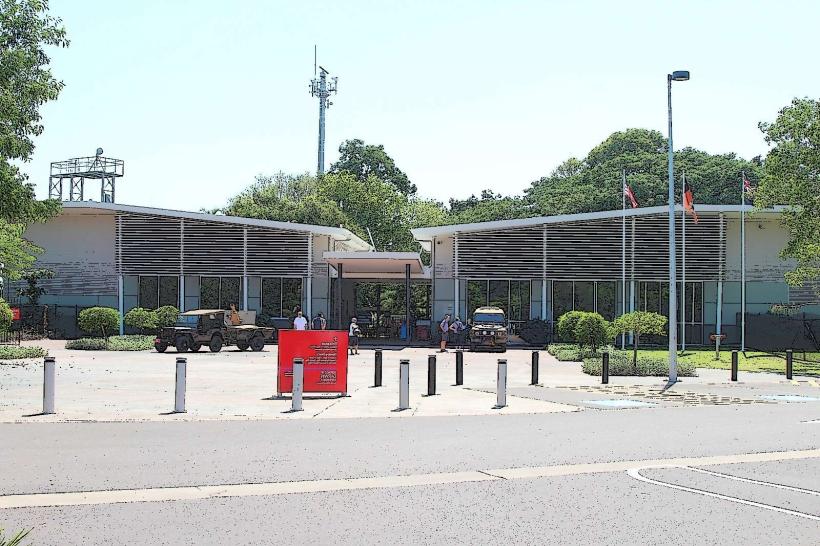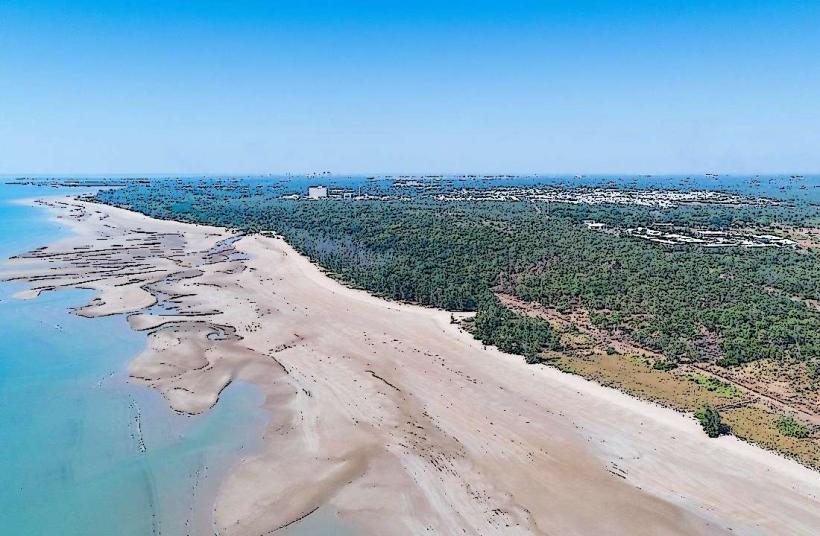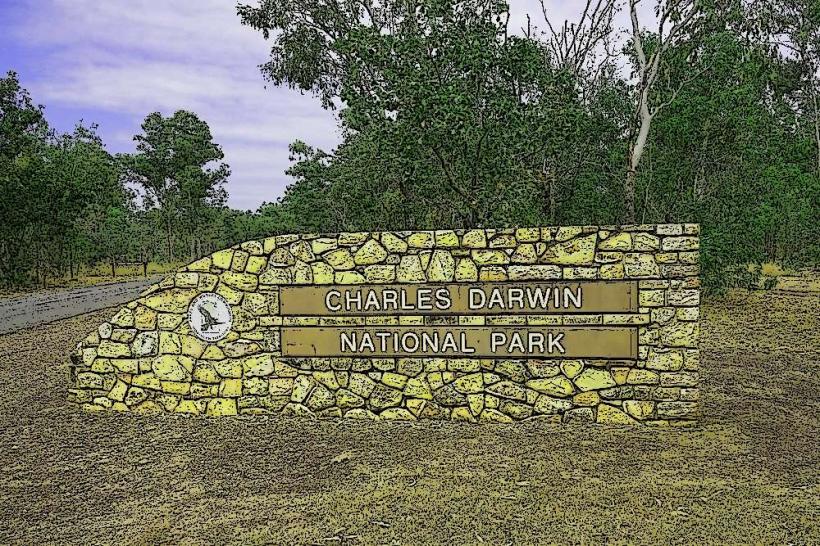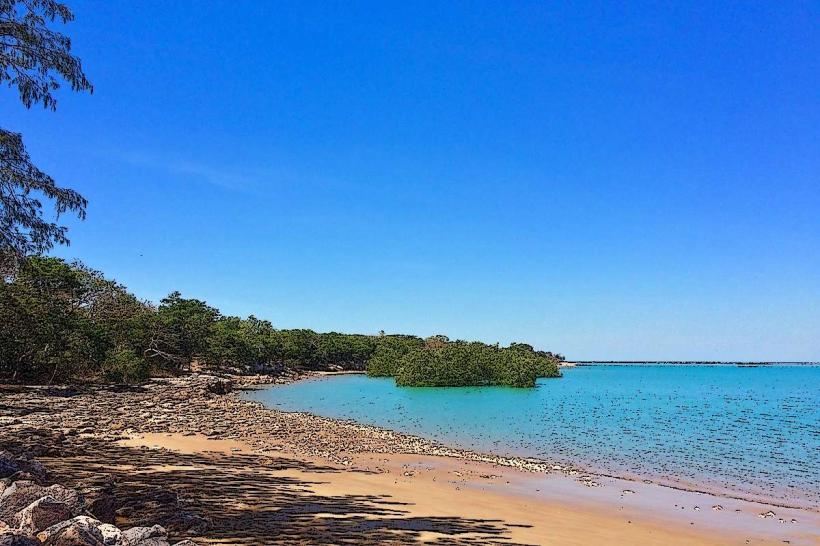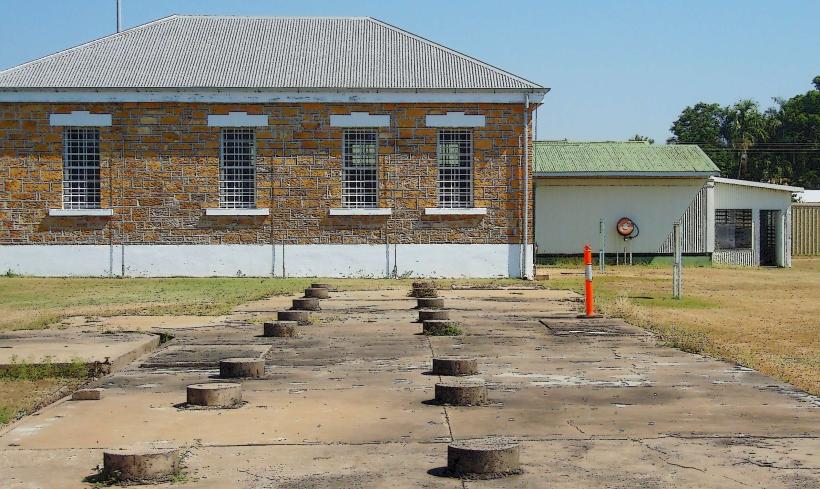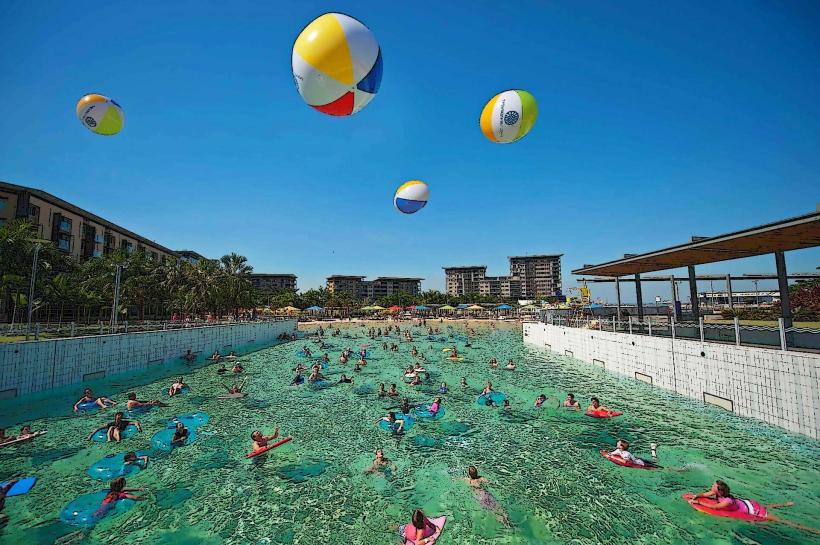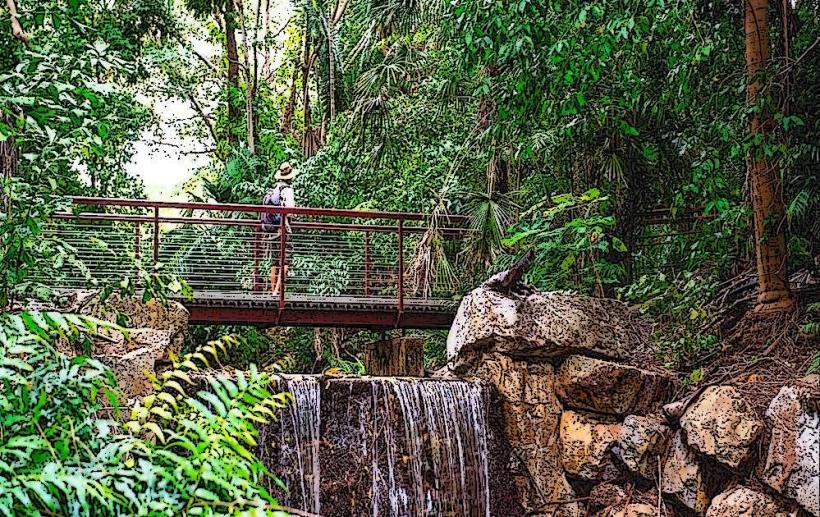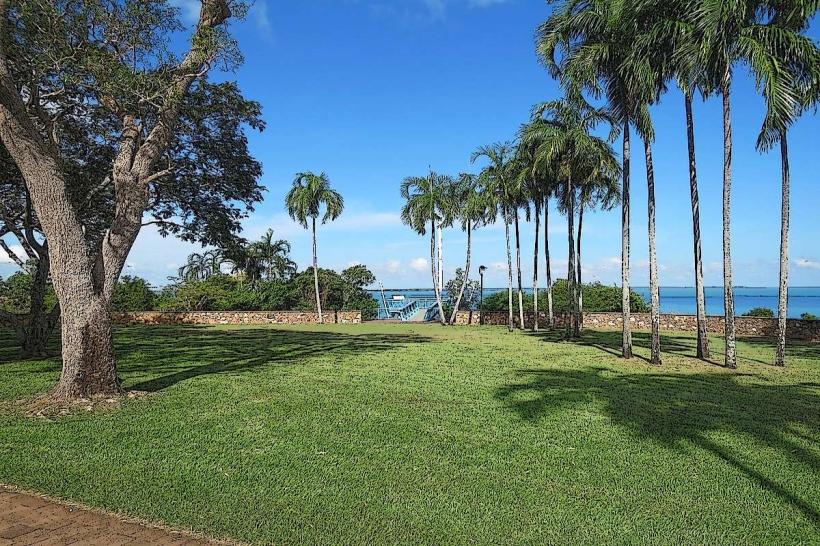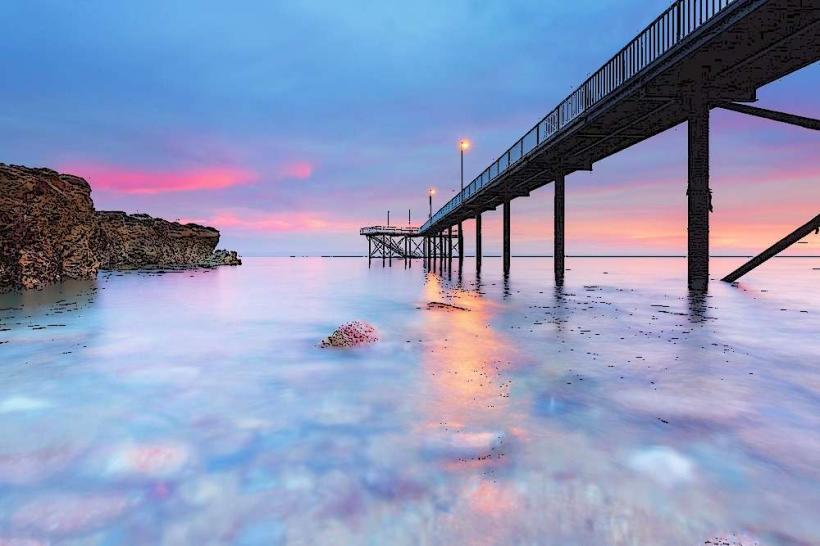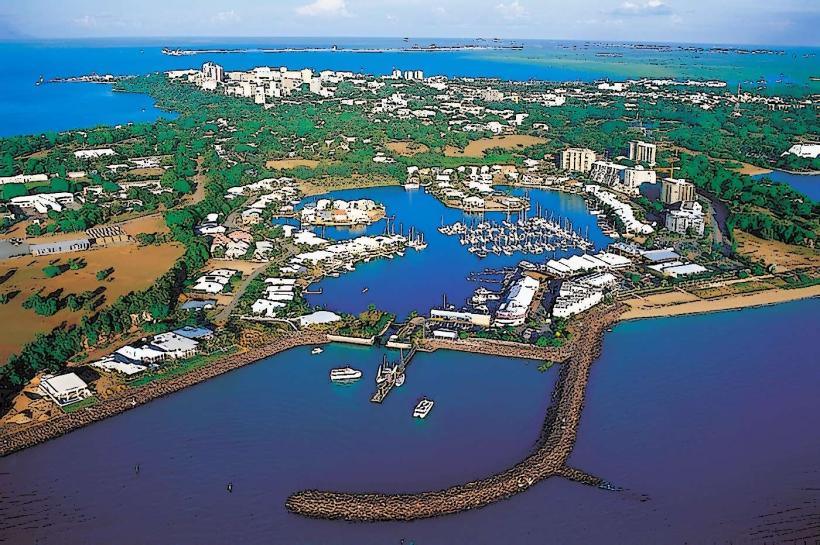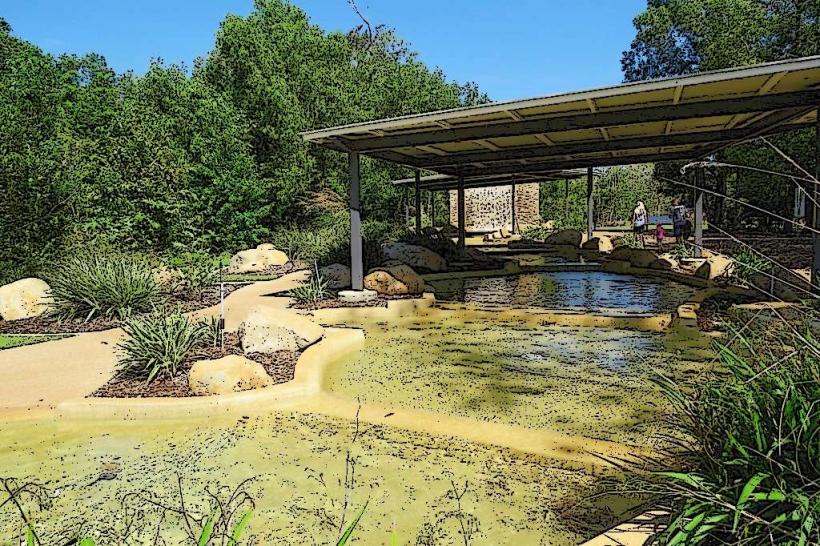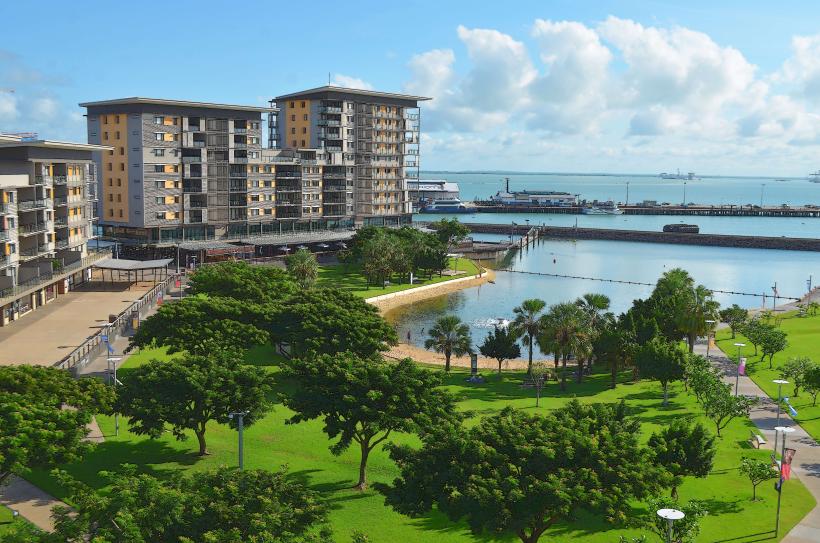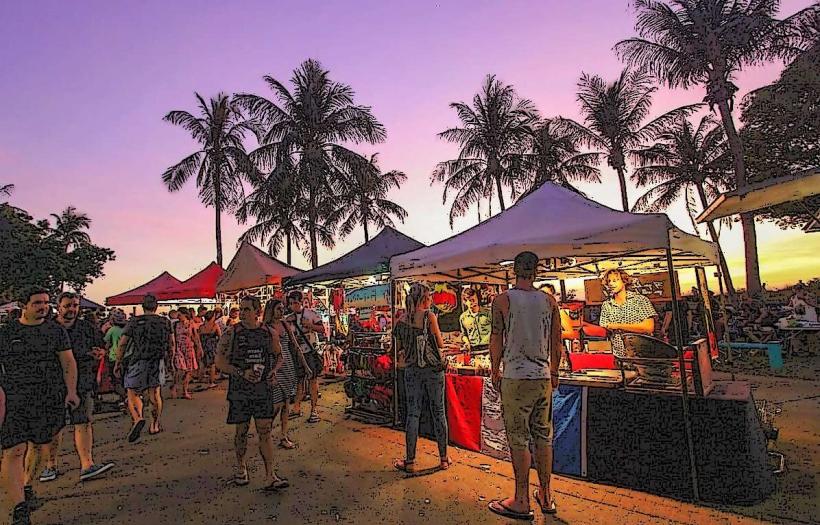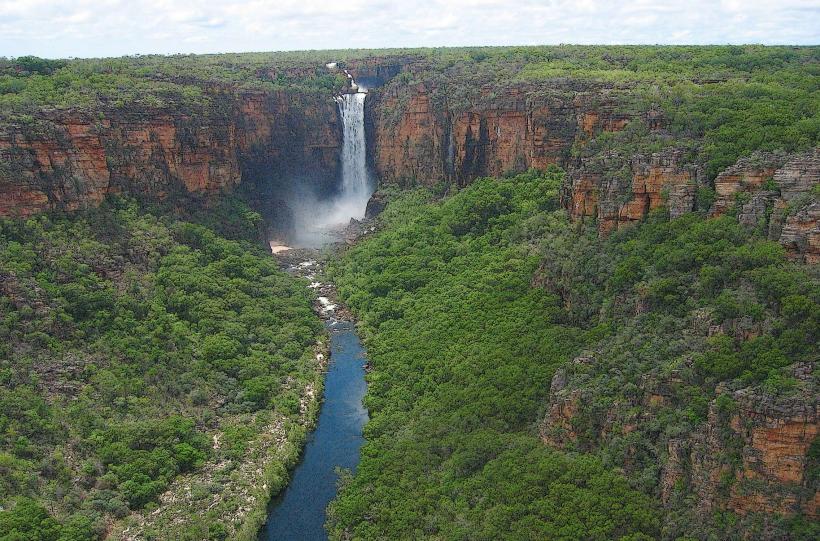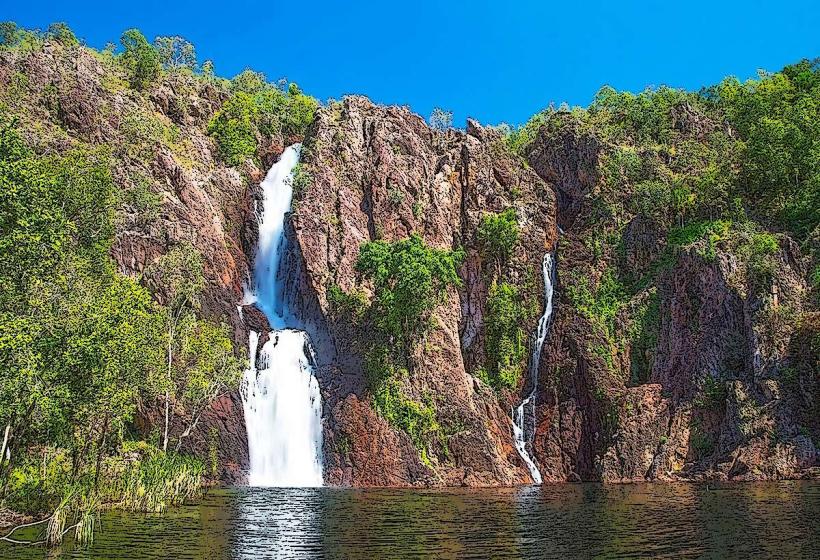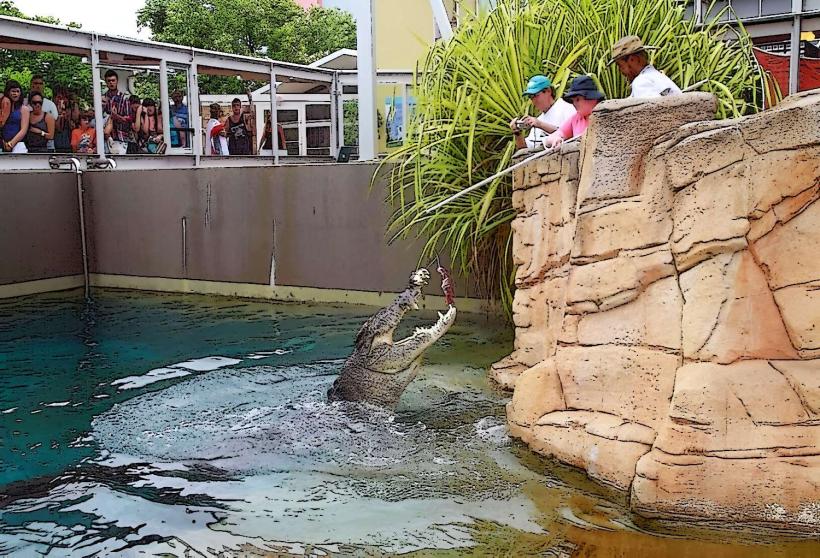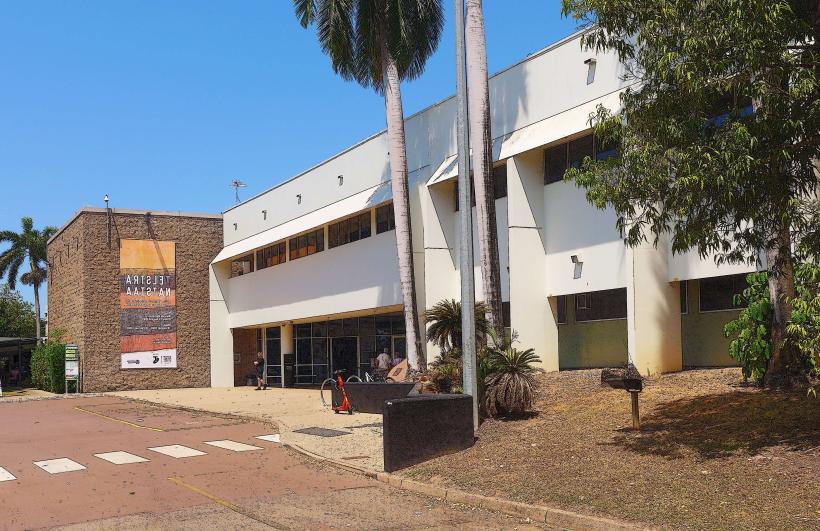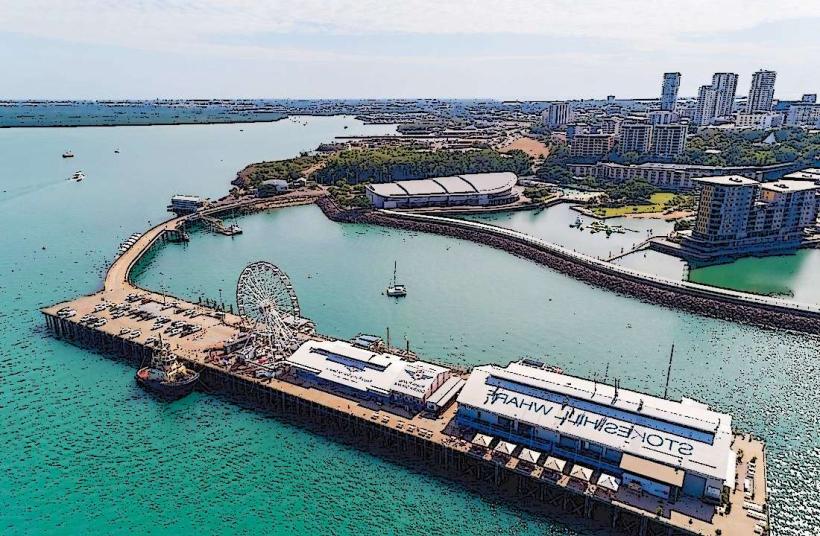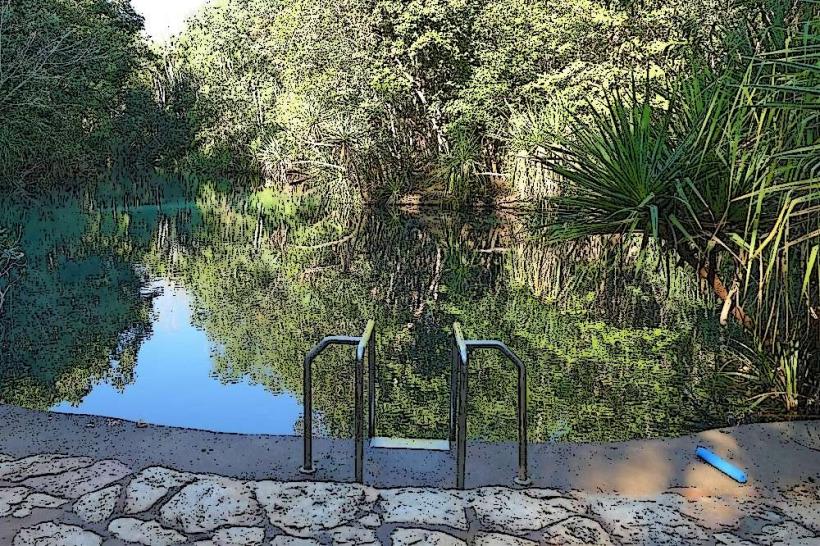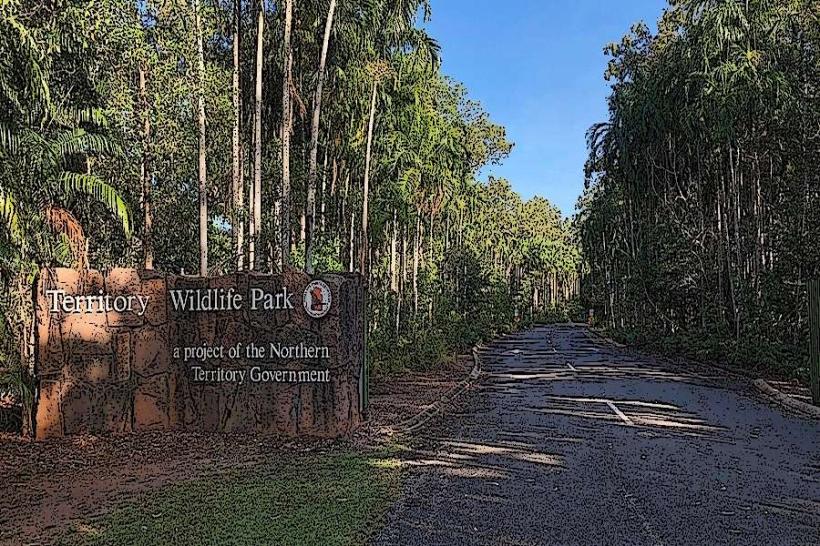Information
City: DarwinCountry: Australia
Continent: Australia
Darwin, Australia, Australia
Darwin: A Detailed Overview
Darwin is the capital city of the Northern Territory and the northernmost city in Australia. Known for its tropical climate, multicultural atmosphere, and proximity to Southeast Asia, Darwin is a city that offers rich cultural diversity, vibrant outdoor living, and a strong Indigenous heritage. The city also serves as a gateway to some of Australia's most iconic national parks and natural wonders.
1. Geography and Climate
Darwin is located on the Timor Sea, along the northern coast of Australia, approximately 2,570 kilometers (1,600 miles) north of Brisbane. Its tropical monsoon climate is characterized by two distinct seasons: a wet season and a dry season.
Wet Season (Nov–Apr): The wet season is marked by high humidity and heavy rainfall, with temperatures ranging from 25°C to 33°C (77°F to 91°F). This period also brings tropical storms and occasional cyclones.
Dry Season (May–Oct): The dry season offers clear skies, lower humidity, and cooler temperatures, ranging from 21°C to 30°C (69°F to 86°F). This is the best time to visit, with perfect conditions for outdoor activities.
Rainfall: Darwin experiences most of its annual rainfall during the wet season, and the overall rainfall can be quite significant, leading to lush greenery in the surrounding areas.
The climate is a key factor in shaping the lifestyle and outdoor culture in Darwin, making it ideal for beach activities, fishing, and water sports.
2. Economy and Business
Darwin's economy is diverse, though it is heavily influenced by its geographical location and historical ties to both Australia and Southeast Asia. Key sectors in the economy include tourism, energy, resources, and defense.
Tourism: The city's proximity to Kakadu National Park, Litchfield National Park, and the Katherine Gorge makes Darwin a hub for visitors seeking to explore the region's natural beauty. The Darwin Festival and events like the Darwin Cup Carnival also attract visitors throughout the year.
Energy & Resources: Darwin is a significant player in Australia's mining and energy sectors, with several liquefied natural gas (LNG) plants and a strong mining presence in the region.
Defense & Military: Due to its strategic location, Darwin is home to defense bases and plays a major role in Australia's military operations in the Asia-Pacific region.
Fishing and Agriculture: Darwin is known for its seafood, particularly Barramundi, and the Top End's tropical fruit industry, which also supports the local economy.
Darwin’s economy is growing, especially with the Northern Australia Infrastructure Facility (NAIF), which is driving investments in infrastructure and development.
3. Transportation and Infrastructure
Darwin is well-connected to the rest of Australia and the world, despite being geographically isolated. The city has a robust infrastructure for air, sea, and road transport.
Darwin International Airport: The main gateway to the city for both domestic and international flights, offering direct connections to Asia and major Australian cities like Sydney, Melbourne, and Brisbane.
Port of Darwin: The port plays a crucial role in international trade and ferry services to nearby regions, including East Timor and Indonesia.
Public Transport: The city has a bus network, but public transport is not as extensive as in larger Australian cities. Most locals rely on cars for commuting.
Roads & Highways: Darwin is linked to the rest of Australia via the Stuart Highway, which stretches from Port Augusta in South Australia up to Darwin. The city is also connected by a series of regional roads that link to outback areas and national parks.
Because of its smaller size, cycling and walking are common modes of transportation for locals, particularly in the city center.
4. Culture and Lifestyle
Darwin is known for its relaxed, outdoor lifestyle, blending tropical living with a vibrant multicultural environment. The city's cultural diversity is reflected in its food, festivals, and arts scene.
Arts and Entertainment
Darwin Festival: Held annually, this event is a celebration of music, dance, theater, and visual arts from across Australia and Southeast Asia.
Mindil Beach Sunset Market: A popular night market that takes place seasonally along Mindil Beach, offering a blend of local art, crafts, and international cuisine.
Museum and Art Gallery of the Northern Territory (MAGNT): Showcases exhibitions on Indigenous art, natural history, and the region’s maritime heritage.
Indigenous Art & Culture: Darwin has a strong Indigenous presence, with many art galleries and cultural centers showcasing Aboriginal and Torres Strait Islander art and history.
Theater & Music: The Darwin Entertainment Centre hosts live performances, while local music is celebrated at bars, pubs, and outdoor venues around the city.
Food and Dining
Darwin’s multicultural population is reflected in its food scene, which includes a mix of Asian, Indigenous, and modern Australian cuisine. Popular food areas include:
Mindil Beach & Waterfront: For casual dining by the sea, with seafood, grilled meats, and international options.
Cullen Bay & Stokes Hill Wharf: Offers fine dining with views of the harbor, specializing in seafood and fresh produce from the Top End.
Chinatown: Known for its Chinese, Thai, and Indonesian restaurants that reflect Darwin's close connections with Southeast Asia.
Darwin’s local produce includes tropical fruits, Barramundi, and crocodile meat, offering a truly unique culinary experience.
5. Major Attractions
Natural Attractions
Kakadu National Park: A UNESCO World Heritage site located just outside Darwin, known for its Aboriginal rock art, waterfalls, and wildlife.
Litchfield National Park: Famous for its waterfalls, swimming holes, and lush rainforests.
Gorge National Park: Known for Katherine Gorge, a series of stunning gorges carved by the Katherine River.
Darwin Waterfront Precinct: Includes lagoon pools, a wave pool, and restaurants with views of the harbor.
East Point Reserve & Lake Alexander: A scenic park with walking trails, wildlife viewing, and beach access.
Historical and Cultural Sites
Darwin Military Museum: Highlights the city’s strategic importance during World War II and the Bombing of Darwin.
Museum and Art Gallery of the Northern Territory (MAGNT): Features a collection of Indigenous art, maritime history, and natural history.
The Darwin Aboriginal Art Fair: Celebrates the art and culture of Indigenous artists from across Northern Australia.
Manning Street & Government House: Historical buildings showcasing colonial architecture.
Other Attractions
Crocosaurus Cove: A crocodile park where visitors can interact with and observe one of Australia’s most famous predators.
The Darwin Waterfront & Lagoon: Offers swimming, picnicking, and water-based activities in a family-friendly environment.
Fishing & Marine Adventures: Darwin is a renowned destination for deep-sea fishing, with opportunities to catch Barramundi and sailfish.
Night Markets & Food Trucks: A vibrant selection of local food vendors, selling everything from Asian street food to local specialties.
6. Education and Research
Charles Darwin University (CDU): A major institution in the city offering courses in a range of fields, with a strong focus on Indigenous studies, education, and environmental sciences.
Research Facilities: Darwin is home to several research centers focusing on marine science, tropical health, and climate change.
7. Sports and Recreation
Australian Rules Football (AFL): The city is home to Northern Territory Thunder, a team that competes in the AFL competitions.
Cricket: Darwin has a strong cricket culture, with local competitions and matches during the dry season.
Water Sports & Fishing: Darwin is a haven for fishing, sailing, surfing, and kayaking, with opportunities for all levels of enthusiasts.
Hiking & Cycling: The surrounding national parks and reserves offer numerous opportunities for hiking and cycling, including trails around Mount Stuart and East Point.
8. Challenges and Future Development
Climate Change & Rising Sea Levels
As a coastal city, Darwin faces challenges related to climate change, including rising sea levels and the risk of tropical cyclones.
Economic Diversification
While Darwin’s economy is growing, it remains dependent on sectors like energy and defense, which makes it vulnerable to global economic fluctuations. The city is exploring technology and creative industries as a means of economic diversification.
Conclusion
Darwin is a dynamic and exciting city, offering a unique blend of outdoor adventures, multicultural influences, and tropical living. With its natural beauty, historical significance, and vibrant arts scene, Darwin is a place where both locals and visitors can enjoy a laid-back lifestyle while also exploring the vast wilderness of Northern Australia.

